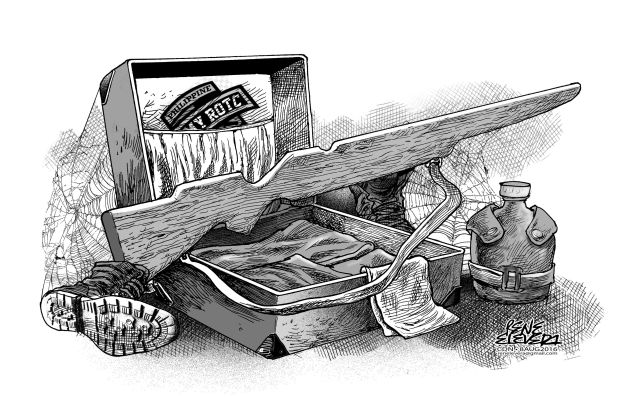
President Rodrigo Duterte’s plans to revive the Reserve Officers’ Training Corps (ROTC) in high school and college may be quite unpopular with the millennial generation, but we understand his call for discipline among the citizenry, especially the youth who has been declared time and again as the country’s future.
Those who managed to scrape by and survive the ROTC remember all too well those days spent in the field, doing marches and undergoing training for basic military skills that may or may not be used upon graduation.
When the ROTC was scrapped oh so many years ago, there was a proposal to replace it with the Boy Scouts program, but we don’t know what came out of it. To be sure, the militant leftist youth groups were vehement in their opposition to the ROTC, saying it just promotes militarization of the campus.
But as in any good program, like say the Sangguniang Kabataan (SK), the ROTC was steeped in abuse and corruption. There were instances of abuse comparable to those committed in fraternities and sororities in which cadets are made to undergo tests that stretch their physical and mental tolerance that often go too far.
It’s not unusual for someone who performs poorly in class to become an ROTC officer and take out their frustrations on those scholars or even abuse their position to go after female coeds.
If the Philippine Military Academy saw its fair share of hazing cases, what’s to prevent that from happening in ROTC programs? If it is to be implemented anew in the schools, it should be emphasized that the ROTC, like athletics, is definitely no substitute for a good education unless the student plans to pursue a military career.
But again, there are other ways and programs that can be used to instill love of country and discipline among the youth. The Boy Scouts program especially in its early stages can teach basic life skills among school children, and the values and principles taught often stay with them through their adolescence.
If the government pushes through with the ROTC, it should make it attractive and useful to the youth by teaching them other skills besides combat. ROTC can be a venue for teaching them emergency rescue skills which are especially valuable in these unpredictable times of global climate change.
Again we look to the US for some instruction. In trying to strengthen their recruitment process, the US military includes in its program courses that enable the soldier to secure employment long after he or she has left the Armed Forces like mechanics, carpentry, medicine, information technology and so on.
In reviving the ROTC, the Duterte administration should make sure that it is corruption-free and offers a more well-rounded approach to educating, disciplining and molding the Filipino youth to become better productive citizens of this country.